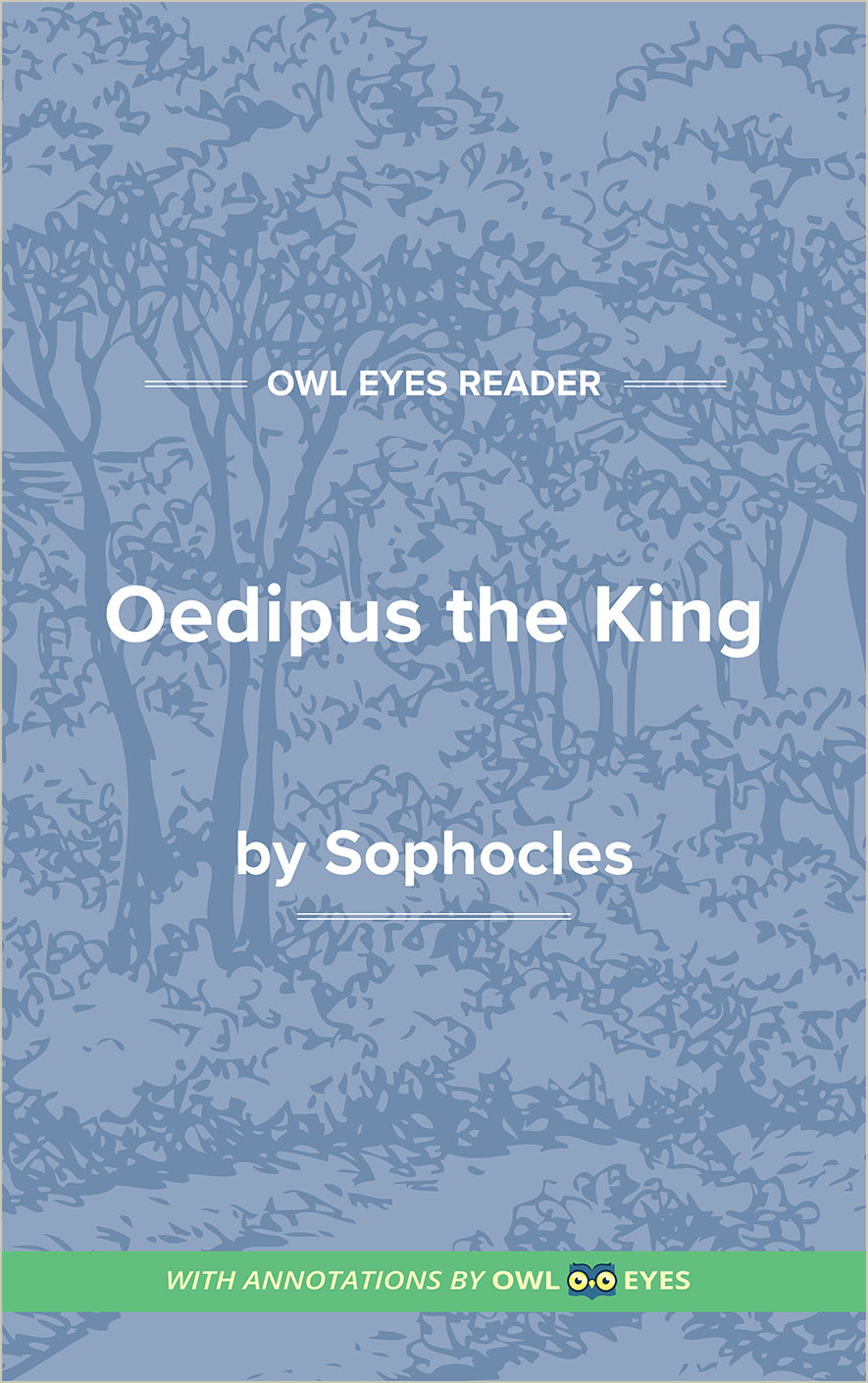Analysis Pages
Plot in Oedipus the King
Oedipus the King begins when a plague blights the city-state of Thebes. Oedipus, the king, discovers the source of the plague: a curse resulting from the disappearance of the former king Laius. Laius was reportedly murdered by bandits, and so Oedipus resolves to find and kill the bandits. Oedipus requests the advice of the prophet Tiresias, who tells the king that he himself is the criminal he seeks. Oedipus rages at the prophet and ignores his words. As the play continues, Oedipus continues his search, discovering more and more about the circumstances of Laius’s murder. In the process, Oedipus inadvertently learns more about himself. It is revealed that Jocasta abandoned her first-born son on Mount Cithaeron due to a prophecy that the boy would grow up to kill his father and wed his mother. It is discovered, too, that the shepherd who witnessed Laius’s murder was the same shepherd who rescued and raised the infant Oedipus. When the truth is revealed, Jocasta and Oedipus spiral into grief. Jocasta hangs herself, and after finding her body, Oedipus gouges out his own eyes with her hairpins. At the play’s end, Oedipus’s fate is ambiguous, left to be decided by oracles. He pleads to be exiled. In the final moments, the Chorus reminds us that misfortune can befall even the most admired people: “Therefore wait to see life's ending ere thou count one mortal blest; Wait till free from pain and sorrow he has gained his final rest.”
Plot Examples in Oedipus the King:
Oedipus the King
🔒"suborned..." See in text (Oedipus the King)
"Pythian Phoebus..." See in text (Oedipus the King)
"fell songstress..." See in text (Oedipus the King)
"A blight on wives in travail..." See in text (Oedipus the King)
"This day shall be thy birth-day, and thy grave...." See in text (Oedipus the King)
"thou hast eyes, Yet see'st not in what misery thou art fallen,..." See in text (Oedipus the King)
"in whom Above all other men is truth inborn...." See in text (Oedipus the King)

